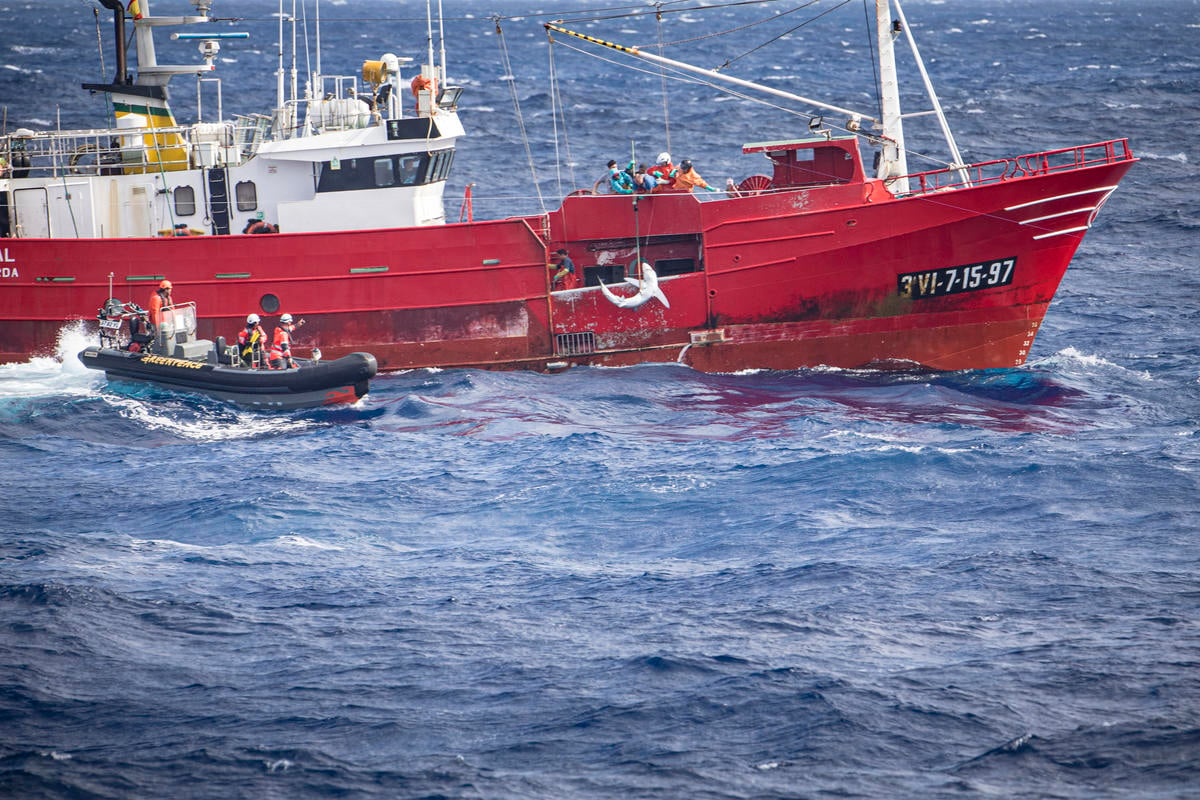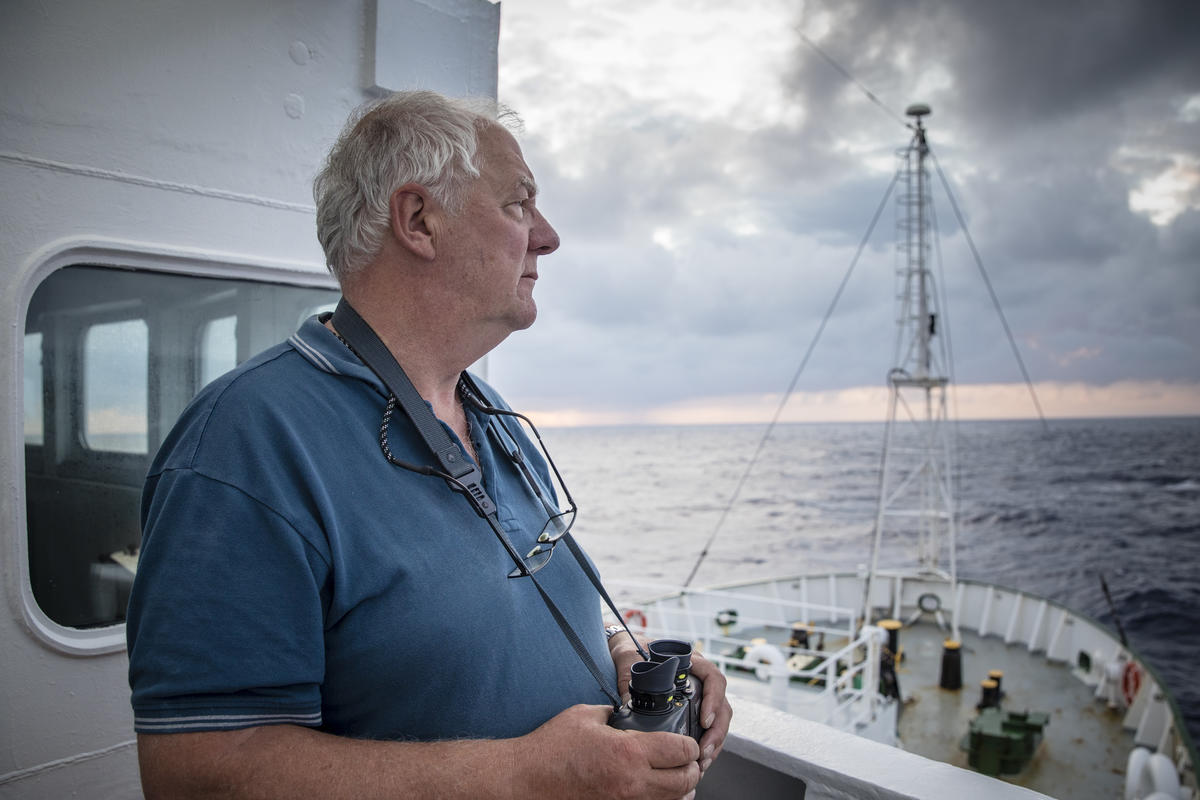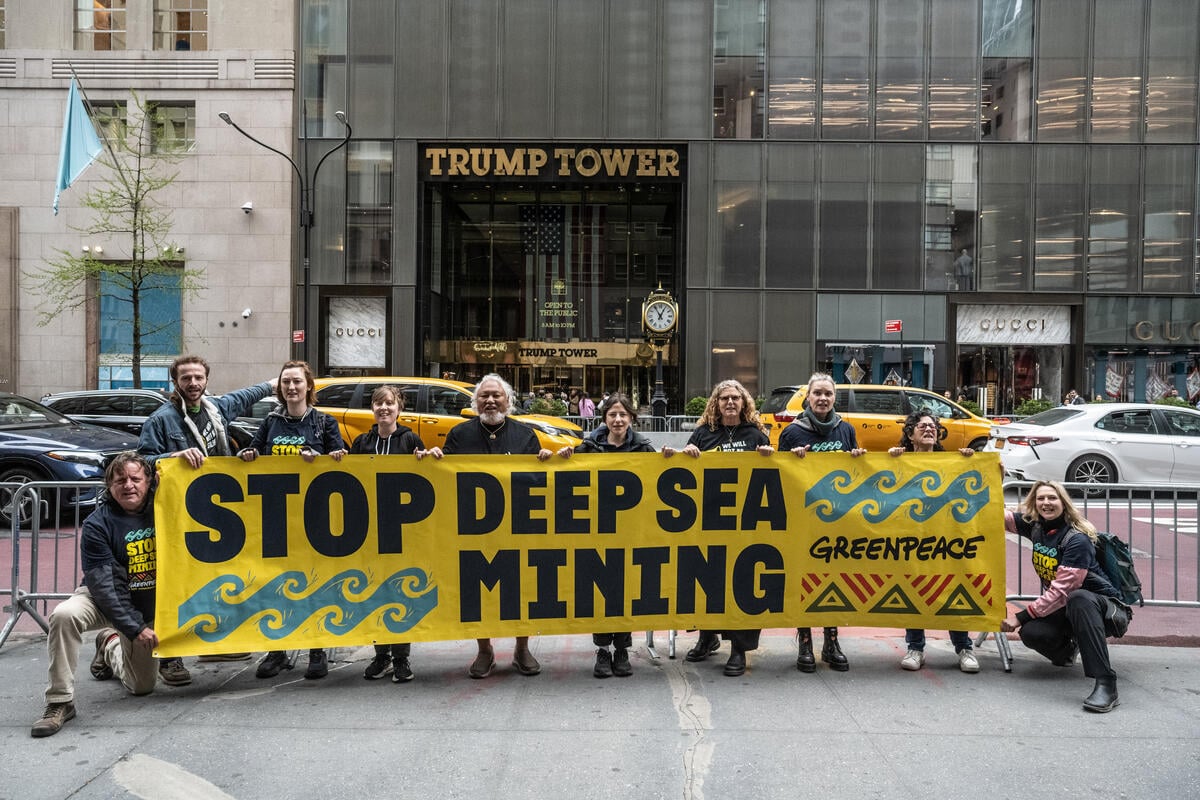It’s no secret that human activities are causing huge problems for the oceans. But it rarely looks as horrific as this.
https://www.facebook.com/greenpeace.international/videos/452370235345827/
We often think of sharks as ultimate predators, and in some ways they are. But humans are far more deadly. As the Greenpeace ship Esperanza, sailed from the Arctic to our next destination – the Lost City – we passed right through the middle of a shark and swordfish fishing ground, at exactly the time when they are most active in this area. Greenpeace analysis based on official fishing data shows that up tp to 25,000 endangered sharks are killed here every year.
Our analysis also showed that the boats that fish in this area actually catch many more sharks than swordfish (a ratio of 4:1 by weight.) These sharks are mostly caught for their fins. This kind of destructive overfishing is a prime example of how the current system for managing our global oceans is failing. We couldn’t simply pass through without doing something about it.
Confronting destructive fishing
The weather out there was terrible, so we only had a few hours to act. But we managed to track down a longliner: a vessel that fishes with huge lines with hundreds of hooks. The line on this particular boat was over 40 miles long. We stayed with them for a number of hours in choppy water, to document their horrific practices and expose them to the world.

Investigating the overfishing of sharks in the North Atlantic ocean on transit to the Azores.
The images speak for themselves. In the relatively short time we were able to observe them we recorded and photographed the boat pulling out at least eight sharks and just one swordfish – confirming the desk research we had done.
We were also very glad to have Jerry Percy on board, a lifelong low-impact fisherman (and former director/founder of Low Impact Fishers of Europe) who was there to witness and help us tell the story that what happens in these international waters impacts on the livelihoods of local fishermen and the coastal communities they are a part of..

Jerry Percy on board the Greenpeace ship Esperanza investigating the overfishing of sharks in the North Atlantic
Despite our occasional differences with the fishing industry (even the low-impact side of it), the fact we need a strong Global Ocean Treaty in order to protect the livelihoods of coastal communities is something we hope we can agree on.
Sharks (and fishers) need ocean sanctuaries
As well as putting much stricter limits on the number of sharks that can be caught, we need to put huge areas of the ocean off limits to harmful human activities, like industrial fishing and oil drilling, in order to give ocean wildlife space to recover from the threats and pressures they’re facing. And scientists agree! To do that we need a Global Ocean Treaty with the powers to create a network of ocean sanctuaries across the world.
Sharks AND humans need healthy oceans to thrive, and we can all help make that happen. Join the campaign to create a network of ocean sanctuaries all over the world.
Will McCallum is an oceans campaigner at Greenpeace UK, on board the Greenpeace ship Esperanza.



